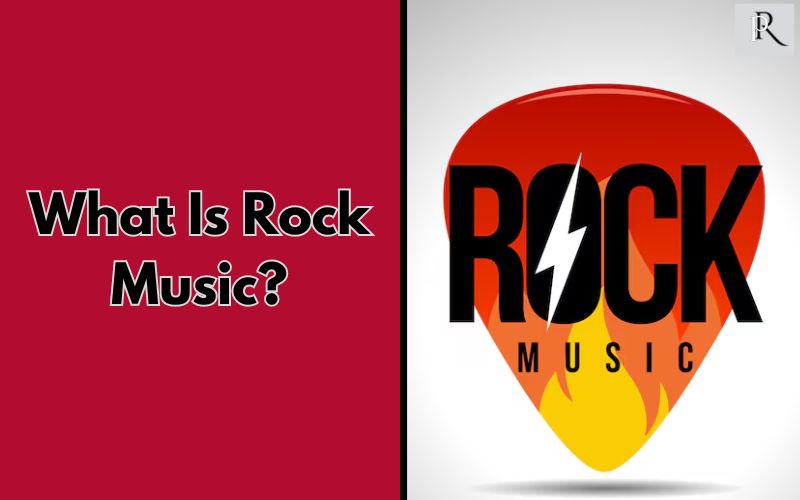What is rock music? This genre, vibrant and layered, has shaped generations and continues to evolve. From its roots to its raucous rebirths, understanding rock music means exploring a rich tapestry of sounds and stories.
Let’s unpack the beats and riffs that define rock music and explore its profound impact on global culture.
Contents
- 1 Definition: What is Rock Music?
- 2 The Characteristics of Rock Music
- 3 A History of Rock Music
- 4 Exploring the Different Subgenres of Rock
- 5 Exploring the Legends: Iconic Rock Bands and Artists
- 6 The Cultural Impact of Rock Music
- 7 FAQs about Rock Music
- 7.1 How did rock music influence the emergence of folk rock?
- 7.2 Who are some key figures in rock music?
- 7.3 What are some notable rock bands from the 1990s?
- 7.4 What distinguishes heavy metal from other rock genres?
- 7.5 What are the general themes of rock music lyrics?
- 7.6 Are there educational programs specifically for rock music?
- 7.7 What are some subgenres of rock music?
- 7.8 What instruments are common in rock music?
- 7.9 What are the most influential rock albums of all time?
- 7.10 What are some iconic rock music festivals?
- 8 Conclusion
Definition: What is Rock Music?

Rock music, a dynamic and ever-evolving genre, originated in the United States during the late 1940s and early 1950s.
With its roots deeply embedded in rock and roll, rock music drew direct inspiration from a rich blend of African-American genres like blues and rhythm and blues, alongside country music.
Over the decades, rock has flourished into a broad spectrum of forms, each echoing the electric guitar’s central role, supported by a standard band ensemble of bass, drums, and often keyboards.
From being the soundtrack to cultural revolutions to reflecting social and political climates, rock music has been an intrinsic part of global music history, resonating with audiences across generations.
The Characteristics of Rock Music
- Instrumentation: The electric guitar is the soul of rock music, usually accompanied by a bass guitar and drums. Keyboards such as the Hammond organ and synthesizers are also common in certain subgenres.
- Structure: Rock typically adheres to a verse-chorus form but isn’t afraid to deviate. It’s known for memorable hooks and choruses, often highlighted by a bridge or a solo performance.
- Lyrics: Themes in rock music are extensive, from personal love and heartbreak to social and political issues. The lyrics often reflect the personal or societal struggles of the time, offering both introspection and commentary.
- Sound: Distinct for its use of amplified instruments, rock often uses distortion, feedback, and other effects to create its trademark powerful and sometimes gritty sound.
- Rhythm: Rock can range from simple, straightforward beats to complex, syncopated patterns, often with a strong emphasis on the backbeat.
- Performance: Live performances are crucial in rock music, known for their high energy and interaction with the audience. Stage performances can be elaborate, featuring complex light shows, visual effects, and sometimes theatrics.
- Innovation and evolution: Rock is continuously evolving, incorporating new sounds, technology, and influences from other music styles, which keeps it dynamically changing and relevant.
A History of Rock Music
Rock music’s journey began in the smoke-filled clubs of the 1950s, where artists like Elvis Presley and Chuck Berry were setting the stage for a musical revolution.
By the 1960s, the genre had exploded into the mainstream, with bands like The Beatles and The Rolling Stones redefining what rock would be. This era saw the birth of various subgenres, each carrying the torch forward into new creative territories.
The 1970s and 1980s witnessed the rise of punk rock, heavy metal, and alternative rock, each echoing the changing social landscapes and technological advancements.
From grunge’s domination in the 1990s to the indie and digital experiments of the 2000s, rock has continually adapted, reflecting the dynamic human spirit.
Exploring the Different Subgenres of Rock

Rock music spans a variety of subgenres, each with its own distinct characteristics and cultural influences. Here’s a closer look at some key subgenres:
- Grunge: Originating in Seattle in the late 1980s, grunge is known for its dirty guitar sound, strong riffs, and contrasting song dynamics. Bands like Nirvana and Pearl Jam popularized the genre, which speaks to themes of disenchantment and social alienation.
- Punk Rock: Emerging in the mid-1970s, punk rock is characterized by short, fast-paced songs with hard-edged melodies and singing styles, often political and anti-establishment lyrics. The Ramones and Sex Pistols were pioneers of this rebellious form.
- Heavy Metal: Known for its loud, aggressive sound, heavy metal features amplified distortion, extended guitar solos, and overall loudness. The genre’s themes often revolve around doom, fantasy, and mythological gods. Black Sabbath and Metallica are quintessential examples.
- Indie Rock: Indie, shorthand for independent, focuses on bands that release their music without major label backing. The sound is diverse, ranging from jangle pop to lo-fi and noise rock. Bands like The Strokes and Arctic Monkeys are notable indie rock artists.
- Alternative Rock: This genre emerged in the 1980s as an alternative to mainstream rock. It encompasses various styles, from grunge to Britpop and post-rock, with bands like R.E.M. and Radiohead defining the broader appeal.
- Psychedelic Rock: Developed during the mid-1960s, this subgenre is known for its extended solos, long instrumental sequences, and lyrical content inspired by psychedelic experiences. The Beatles and Pink Floyd are significant influencers.
- Britpop: Centered around British culture in the 1990s, Britpop bands such as Blur and Oasis drew inspiration from the Beatles and the Kinks, emphasizing catchy melodies and guitar riffs.
- Post-grunge: A more commercially friendly derivative of grunge, post-grunge bands like Foo Fighters and Nickelback feature more polished aesthetics and radio-friendly sounds.
- Pop-punk: Merging punk’s speed and pop’s melodious vocals and catchy hooks, pop-punk became highly popular in the late 1990s with bands like Blink-182 and Green Day leading the charge.
- Garage Rock: Revived in the 2000s by bands like The White Stripes and The Hives, garage rock harks back to the raw, unpolished sound of 1960s rock bands, emphasizing basic chord structures and energetic performances.
Exploring the Legends: Iconic Rock Bands and Artists
Iconic Rock Bands

- The Beatles: Revolutionized the 1960s music scene with albums like Sgt. Pepper’s Lonely Hearts Club Band and Abbey Road, which redefined the potential of rock music.
- Led Zeppelin: Known for their mystical and hard-hitting sound, with classics like Stairway to Heaven and the album Led Zeppelin IV.
- The Rolling Stones: Iconic for their gritty rock sound and hits such as Satisfaction and Paint It Black, they epitomize rock and roll endurance.
- Pink Floyd: Renowned for their concept albums like The Dark Side of the Moon and The Wall, which blend progressive rock with philosophical lyrics.
- Nirvana: Brought grunge to the forefront with their album Nevermind, featuring the groundbreaking hit Smells Like Teen Spirit.
- Metallica: Redefined metal with albums such as Master of Puppets and Metallica (The Black Album), known for intense music and complex themes.
- Queen: Combined rock, opera, and complex arrangements in hits like Bohemian Rhapsody and the album A Night at the Opera.
- The Eagles: Best known for Hotel California, with its distinctive guitar riff and reflective lyrics on fame and excess.
Iconic Solo Artists
- Jimi Hendrix: Changed the face of electric guitar play with explosive tracks like Purple Haze and his transformative performance at Woodstock.
- David Bowie: Innovator of glam rock with albums like The Rise and Fall of Ziggy Stardust and the Spiders from Mars and hits such as Space Oddity.
- Bruce Springsteen: Captured the essence of American life in songs like Born to Run and Born in the U.S.A.
- Elvis Presley: Known as the King of Rock and Roll, Elvis brought a new sound to mainstream America with hits like Heartbreak Hotel and Jailhouse Rock.
- Janis Joplin: Known for her powerful voice and hits like Piece of My Heart and the posthumously released Me and Bobby McGee.
- Eric Clapton: Guitar master whose work with Cream includes classics like Sunshine of Your Love, and solo hits like Tears in Heaven.
- Stevie Nicks: Her unique voice and mystical stage presence shine in songs like Edge of Seventeen and her work with Fleetwood Mac on Rhiannon.
- Chuck Berry: Pioneer of rock music with influential songs like Johnny B. Goode and Maybellene.
The Cultural Impact of Rock Music
Amplifying Rebellion and Social Commentary
Rock music emerged in the 1950s as a form of youthful rebellion, using its platform to address social issues such as racial segregation and political corruption.
Iconic songs like Bob Dylan’s Blowin’ in the Wind and John Lennon’s Imagine symbolized the anti-war and peace movements.
The genre also pushed social boundaries, with artists like The Beatles and David Bowie challenging traditional gender norms, and punk rock becoming a voice for the disenfranchised.
Beyond the Music: Fashion, Film, and a Cultural Tapestry
Rock’s influence extended beyond music to fashion and film, symbolizing a broader cultural rebellion. The evolution from leather jackets to ripped jeans represented a visual manifesto of nonconformity.
Rock cinema, including films like Saturday Night Fever and documentaries like Woodstock, captured the spirit of the era, blending music with visual storytelling.
Soundtracks became integral to films like Back to the Future, embedding rock’s rebellious spirit into popular culture and making it a lasting symbol of defiance and self-expression.
FAQs about Rock Music

How did rock music influence the emergence of folk rock?
Rock music provided the electric sound and beat that folk artists incorporated into their traditionally acoustic music, leading to the creation of folk rock.
Who are some key figures in rock music?
Icons like the Rolling Stones, Michael McDonald, and Stevie Ray Vaughan have been influential in shaping the genre.
What are some notable rock bands from the 1990s?
Bands like Nirvana, Pearl Jam, and Radiohead were prominent in the 1990s, each contributing uniquely to the rock and alternative scenes.
What distinguishes heavy metal from other rock genres?
Heavy metal is known for its intense, loud, and powerful sound, often featuring aggressive lyrics and themes, distinct from more melody-focused rock genres.
What are the general themes of rock music lyrics?
While rock music often emphasizes themes like romantic love, it also addresses a variety of other topics, including social and political issues .
Are there educational programs specifically for rock music?
Yes, there are music schools and programs, such as 123 Rock School of Music, that focus specifically on rock music, offering lessons on various instruments typical to the genre .
What are some subgenres of rock music?
Rock music has diversified into numerous subgenres, including hard rock, indie rock, heavy metal, punk rock, and alternative rock, each with its own distinct style and cultural influence.
What instruments are common in rock music?
The electric guitar, bass guitar, drums, and vocals are the most commonly used instruments in rock music. Keyboards and synthesizers also feature prominently in various rock subgenres
What are the most influential rock albums of all time?
Albums like The Dark Side of the Moon by Pink Floyd, Led Zeppelin IV by Led Zeppelin, and Sgt. Pepper’s Lonely Hearts Club Band by The Beatles are often cited as some of the most influential in rock music, shaping the direction of the genre and influencing countless artists.
What are some iconic rock music festivals?
Festivals like Woodstock, Glastonbury, and Lollapalooza have become iconic, known not only for showcasing top rock artists but also for promoting the communal and free-spirited culture that often surrounds rock music.
Conclusion
Rock music is more than just a genre; it’s a cultural phenomenon that continues to influence new generations. From classic rock to modern variations, it remains a dynamic part of music history. Discover more about rock’s rich legacy on Rachelparris.com.
Discover more music styles:
What is Classical music
Folk music
Pop Music
Rhythm and blues music
Country music
Blues music
Jazz music

